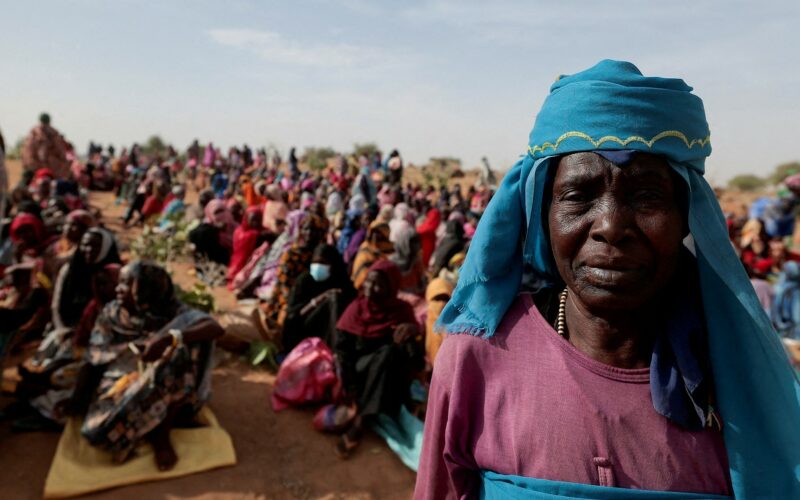Tens of thousands of residents have fled their homes in a displacement camp in El Fasher, a city in Sudan’s Darfur region, following attacks by the Rapid Support Forces (RSF) paramilitary group. The situation has raised international concern that Darfur may be facing another genocide.
The RSF has been besieging El Fasher for several weeks in an attempt to capture the last major population center in Darfur not under its control. Hundreds of thousands of people have taken refuge in El Fasher after escaping from other cities that the RSF has seized over the past year.
According to the Coordinating Committee for Refugees and Displaced People, approximately 60% of the over 100,000 residents of the Abu Shouk camp fled on Thursday. Recent weeks have seen intermittent clashes between the RSF and the Sudanese military near Abu Shouk, but the violence has intensified in recent days.
“Things are getting bad: fighting, killing, displacement,” reported one resident of Abu Shouk, indicating that the RSF had entered the camp.
Minni Minnawi, leader of a faction of the Sudanese Liberation Movement, a rebel group allied with the army, shared a video on Thursday showing homes on fire, claiming it was the result of RSF bombardment. He accused the RSF of attacking the camp after failing to defeat the army and allied militias, likening their tactics to those of the Janjaweed militias, from which the RSF originated. The Janjaweed were accused of committing genocide against non-Arab ethnic groups in Darfur in the 2000s.
The activist group Darfur Victims Support posted a video from Abu Shouk showing smoke rising, reportedly from RSF incursions into the camp on Friday. Before the recent mass exodus, Abu Shouk hosted 100,000 people and had also taken in those displaced by the ongoing conflict, which began in April last year in the capital, Khartoum.
The Yale Humanitarian Research Lab, which monitors conflicts using open-source material, reported on Thursday that satellite imagery showed damage in Abu Shouk and other areas around El Fasher. The RSF appears to be present in several civilian areas and attacking the city from multiple directions.
El Fasher has been under increasing pressure from the RSF, which has encircled the city for months. The Humanitarian Research Lab estimates that 30 communities have been attacked during this period, often with widespread arson that forced residents to flee.
The RSF has faced accusations of committing atrocities, including massacres of civilians, during and after taking control of other cities in Darfur last year. Alice Wairimu Nderitu, the UN’s special adviser on the prevention of genocide, told the BBC that there were signs that “a genocide could be occurring or has occurred.”
Jeremy Konyndyk, president of Refugees International, reported hearing from refugees in Chad who described RSF fighters going house to house, killing fighting-age males. “It’s Janjaweed tactics again in 2023-24, carried out by the same forces that once were called the Janjaweed but now are called the RSF,” he said.
The humanitarian situation in El Fasher is dire. The UN reported on Thursday that the city’s only operating hospital had only 10 days of supplies left. Access to the city is severely disrupted, and a dozen aid trucks have been unable to reach El Fasher for more than a month.
Médecins Sans Frontières (MSF) began evacuating staff this week due to security concerns, although it pledged to continue its operations. While the exact number of casualties is unclear, with many unable to reach hospitals, MSF reported treating 700 casualties as of May 10, with 85 fatalities.








